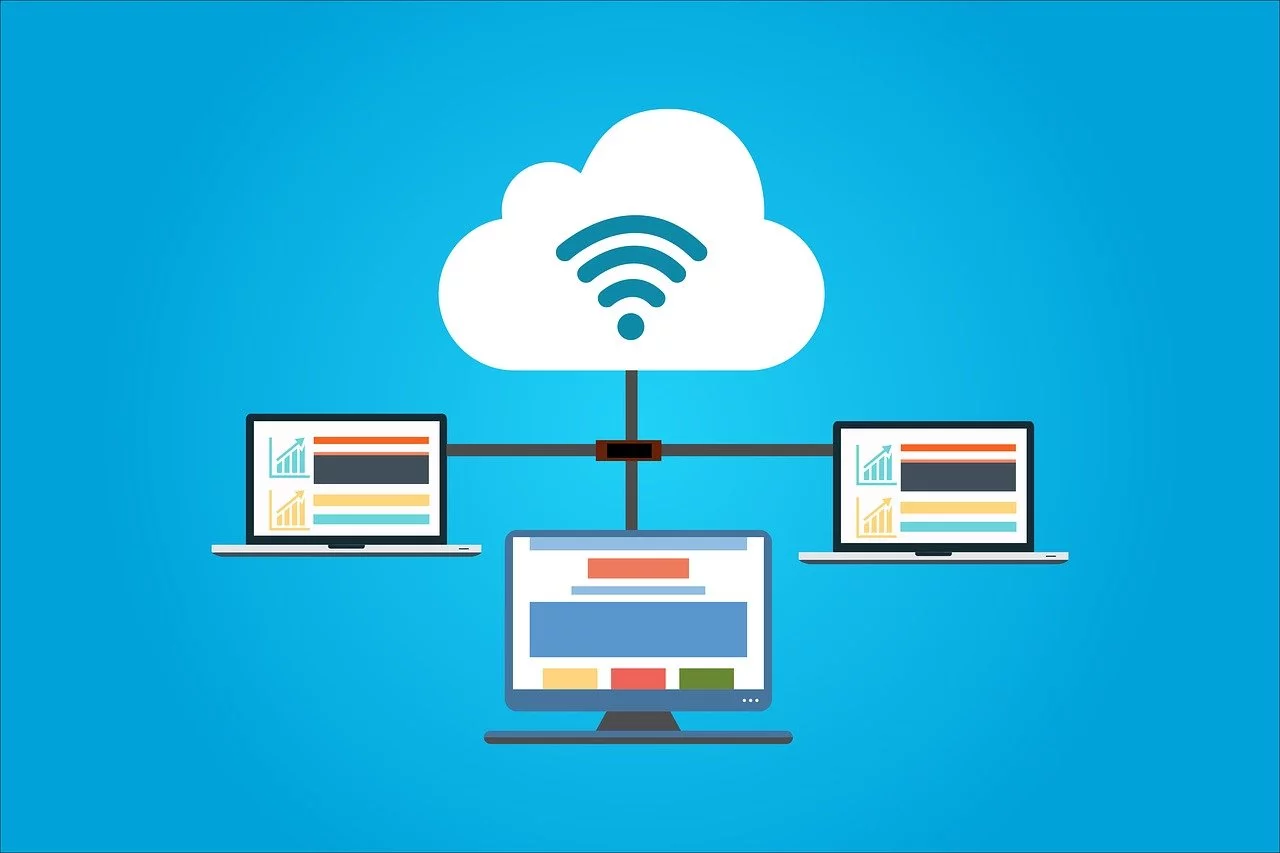Table of Contents
Introduction

Image by Mohamed Hassan from Pixabay
When it comes to running a successful website, one of the most critical factors to consider is its loading speed. Slow-loading websites can negatively impact user experience, leading to high bounce rates and lower search engine rankings. To ensure your website runs smoothly and efficiently, you need to choose the right web hosting provider that offers lightning-fast loading times. In this article, we’ll guide you through the process of finding the best web hosting for your website, ensuring it goes from crawling to sprinting in no time! ⚡️🔍
1. Understanding the Importance of Web Hosting Speed
Website loading speed plays a pivotal role in user experience and SEO rankings. Visitors expect websites to load quickly and efficiently, and search engines like Google consider loading times when ranking websites. A faster website not only keeps users engaged but also increases the chances of conversions and sales.
2. Key Factors That Affect Website Loading Speed
Multiple factors contribute to a website’s loading speed, such as server performance, network connections, website size, and content optimization. Understanding these factors will help you make informed decisions when choosing a web hosting provider.
3. Evaluating Your Website’s Current Loading Time
Before searching for a new web hosting provider, it’s essential to evaluate your website’s current loading time. Various online tools can help you measure the time it takes for your website to load fully.
4. Types of Web Hosting Services
Explore the different types of web hosting services available, such as shared hosting, VPS hosting, dedicated hosting, cloud hosting, and managed WordPress hosting. Each type comes with its pros and cons in terms of speed and performance.
5. Shared Hosting: Affordable but Not Always the Fastest
Shared hosting is an economical option for beginners, but it may not offer the best loading speeds, as you share resources with other websites on the same server.
6. VPS Hosting: Finding the Right Balance
Virtual Private Server (VPS) hosting provides a balance between cost and performance, offering better loading speeds compared to shared hosting.
7. Dedicated Hosting: Top Performance at a Price
Dedicated hosting gives you complete control over a server, providing top-notch performance and loading speeds, but it can be costly.
8. Cloud Hosting: Scalability and Speed Combined
Cloud hosting offers excellent scalability and can handle traffic spikes effectively, leading to faster loading times for your website.
9. Managed WordPress Hosting: Optimized for Speed
If your website runs on WordPress, managed WordPress hosting can significantly improve loading times, as the servers are optimized for the platform.
10. Factors to Consider When Choosing a Web Host
To make the right choice, you need to consider various factors, such as server location, storage type, bandwidth, uptime, CDN availability, caching options, mobile optimization, security measures, customer support, and scalability.
11. Server Location and Its Impact on Speed
The geographical location of your web hosting server affects how quickly your website loads for users in different regions. Choosing a server location close to your target audience can lead to faster loading times.
12. SSD vs. HDD: The Need for Speed
Solid State Drives (SSDs) offer faster data retrieval than traditional Hard Disk Drives (HDDs), significantly reducing loading times for your website.
13. Bandwidth and Data Transfer: Speed and Stability
Sufficient bandwidth and data transfer capabilities are essential for ensuring stable and speedy website performance, especially during traffic surges.
14. Uptime and Downtime: Keeping Your Site Accessible
A reliable web hosting provider will offer high uptime percentages, ensuring your website remains accessible to users at all times.
15. CDN (Content Delivery Network) and Its Advantages
Content Delivery Networks (CDNs) distribute your website’s content across multiple servers globally, enhancing loading speeds for users worldwide.
16. Caching: Boosting Website Performance
Caching allows your website to store static versions of pages, reducing the need for server processing and leading to faster loading times.
17. Minimizing HTTP Requests: Optimizing Load Time
Reducing the number of HTTP requests made by your website can significantly improve loading speed and overall performance.
18. Mobile Optimization: Speed on the Go
With mobile internet usage on the rise, optimizing your website for mobile devices is crucial for ensuring fast loading times for mobile users.
19. Security Measures to Avoid Sluggish Performance
Implementing robust security measures will not only protect your website but also prevent any performance issues that may arise due to security breaches.
20. Customer Support: A Crucial Element
Reliable and efficient customer support is vital for resolving any technical issues promptly, ensuring minimal downtime, and fast-loading websites.
21. Reviews and Testimonials: Learning from Experience
Read reviews and testimonials from other customers to gain insights into the actual performance and loading speeds of web hosting providers.
22. Price vs. Performance: Striking the Right Balance
While cost is an important factor, prioritizing performance and loading speed is essential to ensure your website’s success.
23. Scalability: Preparing for Future Growth
As your website grows, it’s crucial to choose a web hosting provider that can accommodate increased traffic and maintain fast loading times.
24. Migrating to a New Web Hosting Provider
If you’re dissatisfied with your current web hosting service, learn how to plan and execute a seamless migration to a new provider.
25. Putting It All Together: Making the Right Choice
Summarize the key points and factors discussed in this article, guiding readers on how to make an informed decision to find the best web hosting for their specific needs.
Conclusion
In conclusion, a slow-loading website can be detrimental to your online presence, affecting user experience and search engine rankings. By understanding the importance of web hosting speed and considering key factors that impact loading times, you can make an informed decision when choosing the best web hosting provider for your website. Remember to assess your website’s current loading time, explore various hosting types, and prioritize factors like server location, storage type, and security measures. With the right web hosting, your website can go from slow to lightning-fast, ensuring optimal performance and a positive user experience for your visitors.
FAQs
Q: What is the significance of website loading speed?
A: Website loading speed is crucial as it directly impacts user experience and search engine rankings. Faster-loading websites keep users engaged, improve conversion rates, and boost SEO rankings.
Q: How can I measure my website’s current loading time?
A: Various online tools, such as Google PageSpeed Insights and GTmetrix, can help you measure your website’s loading time and provide insights into areas for improvement.
Q: What are the types of web hosting services available?
A: There are various types of web hosting services, including shared hosting, VPS hosting, dedicated hosting, cloud hosting, and managed WordPress hosting, each catering to different needs.
Q: Is shared hosting a good option for faster loading times?
A: While shared hosting is affordable, it may not offer the best loading speeds as resources are shared among multiple websites on the same server.
Q: How can a Content Delivery Network (CDN) enhance website speed?
A: CDNs distribute your website’s content across multiple servers globally, reducing latency and improving loading speeds for users in different regions.
Q: What factors should I consider when choosing a web hosting provider?
A: When selecting a web host, consider factors such as server location, storage type, bandwidth, uptime, CDN availability, caching options, mobile optimization, security measures, customer support, and scalability.
The 10 Best Web Hosting Services of 2023

